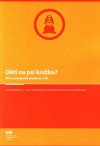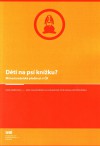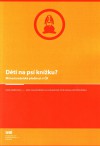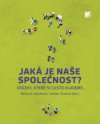Předkládaný projekt si klade za cíl zmapovat situaci neprovdaných matek po roce 1989 s důrazem na sociální a regionální aspekt problematiky a navrhnout a zhodnotit případné nástroje sociální politiky na základě zahraničních zkušeností. Doplní tak demografické práce, které upozorňují na to, že se v českém případě nemanželská plodnost kumuluje mezi mladými ženami s nízkým a velmi nízkým vzděláním
Po roce 1989 v české společnosti vzrostly podíly neúplných rodin, ale především se prudce zvýšily počty svobodných matek a v současné době se rodí přibližně 30 % dětí neprovdaným ženám. I když porození dítěte neprovdanou ženou nemusí samo o sobě vypovídat o sociální marginalizaci, v mnoha případech tomu tak je. O typu a relativní rizikovosti svobodného mateřství vypovídají dva faktory: 1) jaké je typické sociální postavení neprovdaných matek; 2) kolik z neprovdaných matek žije v de fakto manželstvích.
Navrhovaný projekt počítá s uskutečněním empirického výzkumu, jehož cílem je zjistit, zda otcové dětí neprovdaných matek obvykle žijí ve stejné domácnosti a nakolik lze nárůst mimomanželské plodnosti vysvětlit rostoucí popularitou nesezdaných soužití. Výzkum se bude rovněž zaměřovat na otázku, zda a v jaké formě se muži zapojují do výchovy dětí a umožní srovnání rodin manželských a ostatních domácností s dětmi. Tímto způsobem se získá jedinečná informace o tom, jaký podíl mimomanželské plodnosti představují svobodné matky v tradičním smyslu slova, jaký je podíl neprovdaných matek žijících ve faktických manželstvích a jaká je sociální situace neprovdaných matek.
Publikace vydané v rámci projektu (celkem 36, zobrazeno 11 - 20)
The book concentrates on the non-marital fertility in the Czech Republic since 1989. After the description of demographic development, chapters ask following questions. What are attitudes towards out-of-wedlock childbearing? To what extend live unmarried mothers alone? What is their motivation to get married or to stay unmarried? Who can profit from being unmarried mother? Do single mothers have enough incentives to work? How spending patterns of two-parent and single-parent families differ?
The book concentrates on the non-marital fertility in the Czech Republic since 1989. After the description of demographic development, chapters ask following questions. What are attitudes towards out-of-wedlock childbearing? To what extend live unmarried mothers alone? What is their motivation to get married or to stay unmarried? Who can profit from being unmarried mother? Do single mothers have enough incentives to work? How spending patterns of two-parent and single-parent families differ?
The book concentrates on the non-marital fertility in the Czech Republic since 1989. After the description of demographic development, chapters ask following questions. What are attitudes towards out-of-wedlock childbearing? To what extend live unmarried mothers alone? What is their motivation to get married or to stay unmarried? Who can profit from being unmarried mother? Do single mothers have enough incentives to work? How spending patterns of two-parent and single-parent families differ?
The book concentrates on the non-marital fertility in the Czech Republic since 1989. After the description of demographic development, chapters ask following questions. What are attitudes towards out-of-wedlock childbearing? To what extend live unmarried mothers alone? What is their motivation to get married or to stay unmarried? Who can profit from being unmarried mother? Do single mothers have enough incentives to work? How spending patterns of two-parent and single-parent families differ?
The book concentrates on the non-marital fertility in the Czech Republic since 1989. After the description of demographic development, chapters ask following questions. What are attitudes towards out-of-wedlock childbearing? To what extend live unmarried mothers alone? What is their motivation to get married or to stay unmarried? Who can profit from being unmarried mother? Do single mothers have enough incentives to work? How spending patterns of two-parent and single-parent families differ?
The book concentrates on the non-marital fertility in the Czech Republic since 1989. After the description of demographic development, chapters ask following questions. What are attitudes towards out-of-wedlock childbearing? To what extend live unmarried mothers alone? What is their motivation to get married or to stay unmarried? Who can profit from being unmarried mother? Do single mothers have enough incentives to work? How spending patterns of two-parent and single-parent families differ?
The article is devoted to the increase in non-marital feritlity in the Czech Republic. It reminds that the current sociology offers two explanations: the theory of the Second demographic transition and the system of social benefits. This article suggest an alternative explanation and points out increase in single motherhood.
In this article, educational homogamy among married and cohabiting couples in selected European countries is examined. Using data from two waves (2002 and 2004) of the European Social Survey, this article compares three cultural and institutional contexts that differ in terms of institutionalization of cohabitation. Evidence from log-linear models yields two main conclusions.
This chapter focuses on attitudes towards marriage and unmarried cohabitation of Czechs and their actual family behavior. Firstly, it answers the question if unmarried cohabitations are becoming more popular and who prefer it. Can we explain an increase of non-marital fertility by the spread of unmarried cohabitations? Secondly, does a character of unmarried cohabitation differ from a marriage and are there any differences between marital and non-marital families with children?
Texts in the bulletin provide the reader with various perspectives of unmarried mothers. In the fist part of the publication we find the summary of the demographic development of the non-marital fertility as well as the principal results of multilevel modelling. The second part presents more detailed picture of the social situation of unmarried mothers drawn on the results from specialized survey of mothers.








Newsletter
Facebook
X
Tweets by SociologickyNewsletter